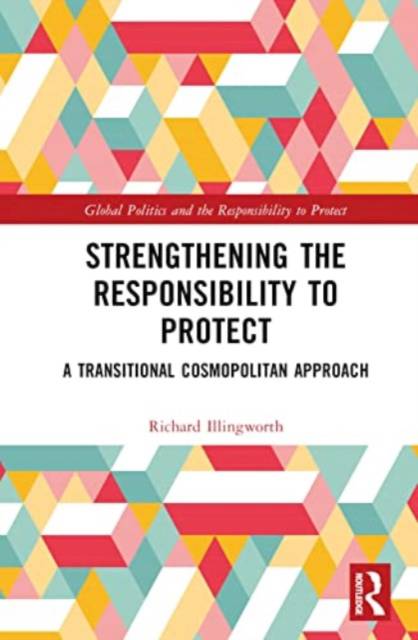
- Afhalen na 1 uur in een winkel met voorraad
- Gratis thuislevering in België vanaf € 30
- Ruim aanbod met 7 miljoen producten
- Afhalen na 1 uur in een winkel met voorraad
- Gratis thuislevering in België vanaf € 30
- Ruim aanbod met 7 miljoen producten
Strengthening the Responsibility to Protect
A Transitional Cosmopolitan Approach
Richard IllingworthOmschrijving
This book provides a systematic analysis of reform measures aimed at strengthening the implementation of the 'Responsibility to Protect' (R2P) doctrine, utilising a cosmopolitan lens.
In 2005, member states of the United Nations (UN) accepted a 'Responsibility to Protect' against four mass atrocity crimes: genocide, crimes against humanity, war crimes, and ethnic cleansing. Despite this commitment, mass atrocities remain a pervasive aspect of the international landscape. In addressing R2P reform, the book utilises a 'transitional cosmopolitan' lens. The aim of this transitional cosmopolitan approach is to promote incremental progress towards solving moral problems by operating within particular contexts and practical barriers to change. Three areas for reform are explored: the UN Security Council P5's power of veto, to prevent the veto obstructing timely and decisive R2P response action; the powers of the UN General Assembly as an alternative means for responding to mass atrocity situations; and the establishment of an 'R2P Commission' to hold states accountable for their R2P commitments. These are not advocated as the definitive areas for R2P reform. However, each of the recommendations made can contribute at least some positive progress towards a more cosmopolitan application of the R2P that would help in curbing mass atrocity and improving the protection of fundamental human rights.
This book will be of much interest to students of the Responsibility to Protect, genocide, humanitarian protection, and International Relations in general.
Specificaties
Betrokkenen
- Auteur(s):
- Uitgeverij:
Inhoud
- Aantal bladzijden:
- 222
- Taal:
- Engels
- Reeks:
Eigenschappen
- Productcode (EAN):
- 9781032494982
- Verschijningsdatum:
- 2/11/2023
- Uitvoering:
- Hardcover
- Formaat:
- Genaaid
- Afmetingen:
- 156 mm x 234 mm
- Gewicht:
- 503 g

Alleen bij Standaard Boekhandel
Beoordelingen
We publiceren alleen reviews die voldoen aan de voorwaarden voor reviews. Bekijk onze voorwaarden voor reviews.











